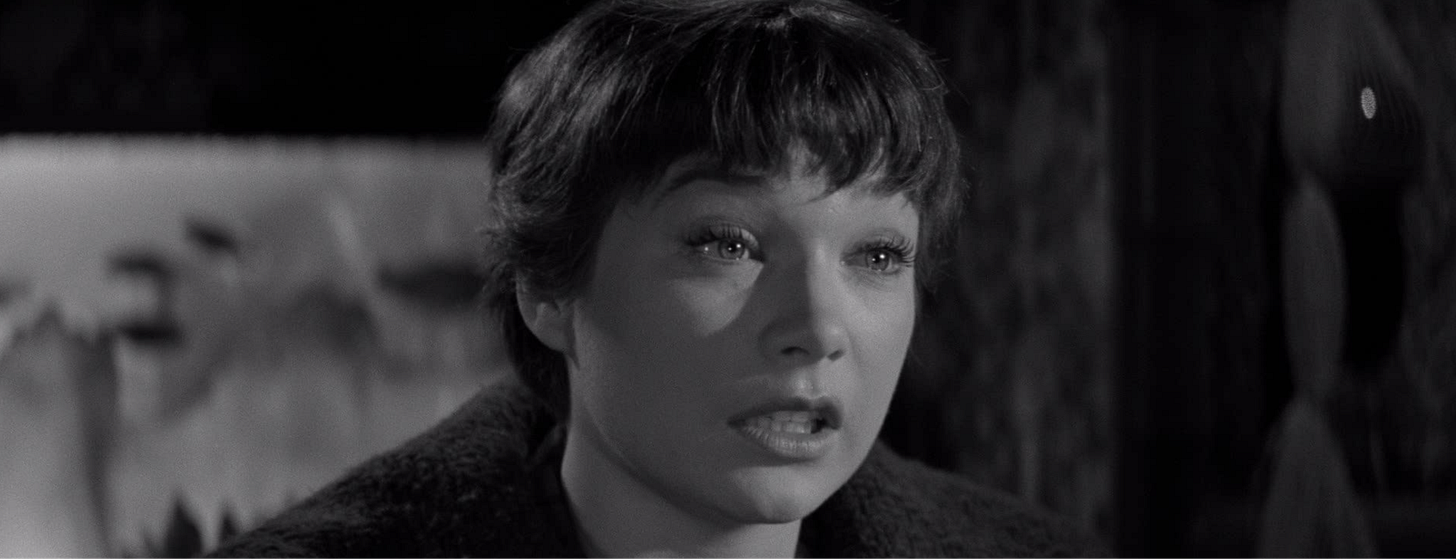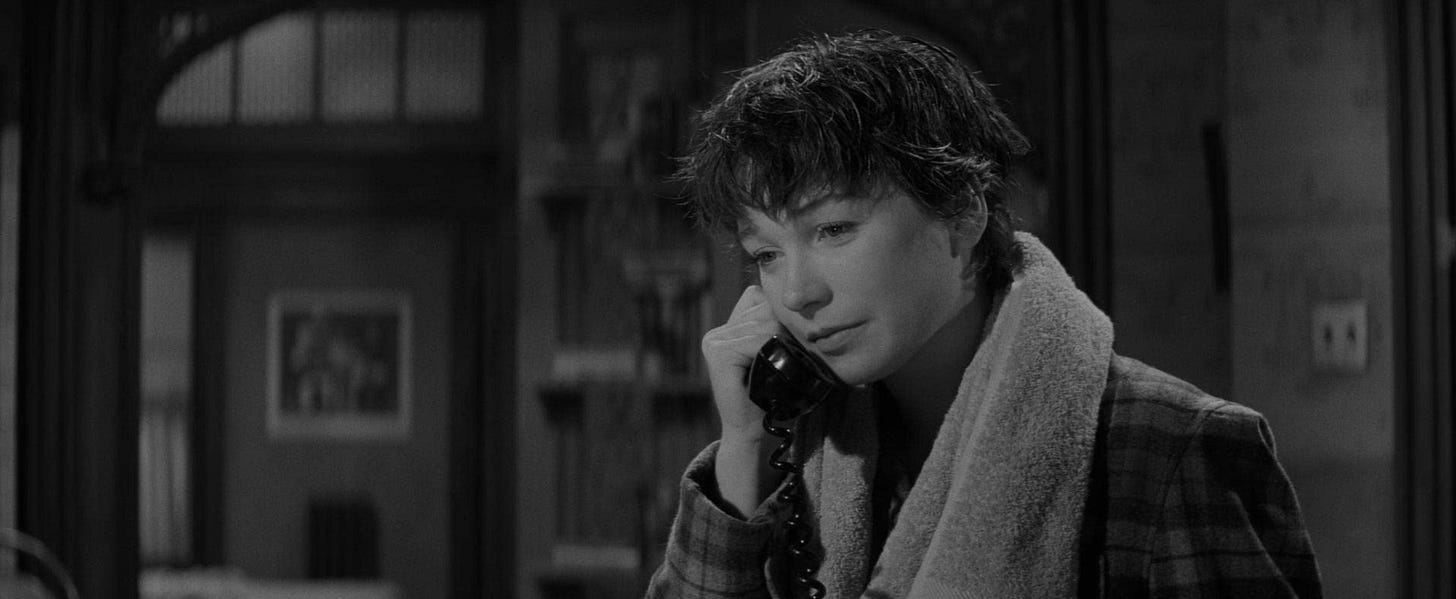The Apartment
Why do people have to love people anyway? (Oops! All Romcoms: Part 3 of 4)
I started writing to explain the greatness of The Apartment (1960), but as I was looking for a header photo, I realized how well-composed and shot many scenes and images from this film are. Looking at the photos took me right back into the mood of the film. I encourage you to take each image in on as big a screen as possible. Do an image search, blow them up, drink them in. It’s film photography at its finest. Speaking of which, Billy Wilder might be the finest writer/director to have ever done the job, and The Apartment might be his greatest work. I’ve referenced his rules for screenwriting on Movie Night before, but I’m just going to post them in their entirety here because it doesn’t matter if you’re interested in screenwriting; if you’re interested in story-telling, you should consider these from time to time:
The audience is fickle.
Grab ’em by the throat and never let ’em go.
Develop a clean line of action for your leading character.
Know where you’re going.
The more subtle and elegant you are in hiding your plot points, the better you are as a writer.
If you have a problem with the third act, the real problem is in the first act.
A tip from Lubitsch: Let the audience add up two plus two. They’ll love you forever.
In doing voice-overs, be careful not to describe what the audience already sees. Add to what they’re seeing.
The event that occurs at the second act curtain triggers the end of the movie.
The third act must build, build, build in tempo and action until the last event, and then—that’s it. Don’t hang around.
That last tip: don’t hang around when it’s over. Excellent advice in any situation, frankly.
The Apartment is often regarded as one of the greatest romantic comedies of all time. At its core, it’s a love story between a lowly office worker, C.C. "Bud" Baxter (Jack Lemmon), and a young elevator operator, Fran Kubelik (Shirley MacLaine). The film is much more than just a simple love story. It explores loneliness, ambition, and the corrupting influence of power. If you are between 25 and 50, this movie is for you.
This movie stands out from other romantic comedies you’ve seen. While the film is undeniably funny, it is also incredibly dark and satirical. The humor is used to highlight the absurdity and cruelty of the corporate world (or perhaps capitalism itself) and to underscore the loneliness and desperation of the characters. For example, one of the most memorable scenes in the film involves Bud preparing his apartment for his boss, Mr. Sheldrake (Fred MacMurray), to use for extramarital affairs. The scene is both funny and disturbing. It highlights the lengths to which people will go to climb the corporate ladder.
Despite its dark humor, The Apartment also has a great deal of heart. The relationship between Bud and Fran is genuinely moving, and their struggles and triumphs feel real and relatable. This is due in no small part to the excellent performances of Jack Lemmon and Shirley MacLaine. Lemmon brings a natural charm and vulnerability to the role of Bud, while MacLaine imbues Fran with a sense of strength and resilience that makes her a memorable and sympathetic character.
Lastly, as is demonstrated by the many frames herein, it’s also worth noting that The Apartment is a technically impressive film. Billy Wilder's direction is masterful, and the cinematography by Joseph LaShelle is stunning. The film's use of black-and-white photography adds to its timeless quality, and the use of light and shadow creates a sense of depth and texture that is rare in modern films. Whether you are a fan of romcoms or not, movies or not, life or not, The Apartment is a film worth watching. It’s a prism of a film that will project different moods depending on where you are in life. It is an essential film.
The Apartment
Written by Billy Wilder and I.A.L. Diamond; Directed by Billy Wilder
1960
125 minutes
English
Stray Thoughts from the Editor
The greatest romcom ever made will be next week’s feature from none other than Dae Woo Son. Frankly, he’s more qualified to write about these things, as his heart is still open to the world and all of its ugliness or splendor, come what may.
This is the second film in a row on Movie Night set in the 60s, and I wonder if I’m drawn to this decade for romcoms because it was an era when relationships (at least in the modern hetero sense) were being redefined. Maybe, in America, heterosexuality peaked in the 1960s. Birth control pills were approved in 1960. The Civil Rights Act of 1964 prevented discrimination in hiring based on race, gender, color, or national origin. The Summer of Love in 1967. The moral arc of the universe bent slightly in the right direction in the 60s, even if we’re still waiting for it to arrive at its destination.









Best movie ever, romantic-comedy-wise!